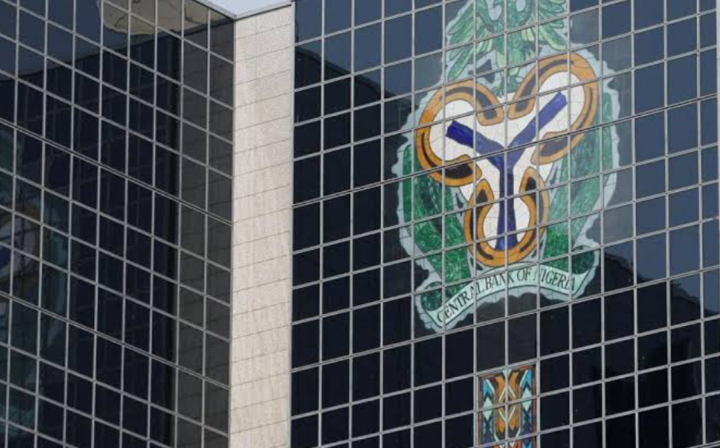Banks’ deposits with the Central Bank of Nigeria (CBN) have skyrocketed by 783 percent year-on-year, rising to a record ₦79.8 trillion as of June 2025, compared to ₦9.04 trillion in the same period of 2024. This sharp increase signals a growing trend in liquidity management and reserve placement among commercial banks, especially amidst recent monetary policy tightening by the apex bank.
The spike, which has drawn attention from analysts and stakeholders across the financial sector, is largely attributed to the CBN’s aggressive mop-up strategy, including frequent issuance of Open Market Operation (OMO) bills, increased Cash Reserve Ratio (CRR) debits, and sustained interest in the Standing Deposit Facility (SDF). These tools are being used by the CBN to control excess liquidity in the banking system, rein in inflation, and stabilize the exchange rate.

Data obtained from the CBN’s latest economic report showed that banks’ total deposits rose sharply in the second quarter of 2025, following the CBN’s decision to hike the Monetary Policy Rate (MPR) to 26.25 percent in May. This higher rate has made it more attractive for banks to keep idle funds with the central bank, earning risk-free returns rather than engaging in volatile interbank or retail lending activities.
According to financial experts, the surge reflects the impact of tightened liquidity conditions and high-interest rates, which have shifted bank strategies toward more conservative liquidity placements. “The higher rates mean banks can now earn significant returns from just parking funds with the CBN instead of lending at a time when credit risk remains elevated,” said Tope Fasua, an economist and CEO of Global Analytics Consulting.
Furthermore, the increase in CBN-held deposits also comes on the back of continued foreign exchange reforms and fiscal adjustments that have affected overall market liquidity. The central bank has intensified efforts to stabilize the naira through coordinated interventions, including increased dollar supply and market reforms, but these actions have absorbed large volumes of naira from circulation.
The tightening measures have not been without consequence. Many commercial banks are now experiencing a contraction in credit growth, with customers, particularly in the SME and manufacturing sectors, complaining of limited access to affordable financing. “It’s becoming harder to secure loans. The banks are simply not lending as much as before, and when they do, the interest rates are discouraging,” said Adaeze Nwachukwu, a business owner in Lagos.
Despite the criticisms, the CBN maintains that its tightening stance is necessary to address inflationary pressures, currently hovering above 28 percent, and to attract foreign investments. It also insists that price stability must take precedence over aggressive credit expansion in the short term.
The apex bank’s strategy seems to be yielding some results. Market observers note that the naira has shown relative stability in recent weeks, with fluctuations narrowing in the official and parallel markets. Inflation, while still high, has started to decelerate marginally, providing some relief to consumers and businesses.
Meanwhile, banks are also adjusting to the realities of higher reserve requirements and reduced liquidity. Many have begun to realign their asset portfolios, moving from riskier retail and corporate lending toward safer investments and deposit placements. Industry sources report that several top-tier banks are increasing their exposure to government securities and CBN facilities as part of their strategy to balance profitability with regulatory compliance.
The CBN, however, faces a delicate balancing act. While mopping up excess liquidity may help stabilize the macroeconomic environment, it risks constraining the productive sectors of the economy that rely on bank credit to function and grow. Analysts warn that prolonged tightening, if not managed carefully, could deepen existing economic challenges such as unemployment and low industrial output.
Looking ahead, the financial community is watching closely to see how the CBN navigates the trade-offs between fighting inflation and encouraging economic growth. The apex bank has hinted at a data-driven approach to its future policy decisions, suggesting that it could ease rates if inflation continues to drop meaningfully over the coming quarters.
In the interim, stakeholders are calling for targeted interventions to cushion the impact on the real economy. These include sector-specific credit schemes, better fiscal-monetary coordination, and structural reforms that improve ease of doing business and attract long-term investments.
As Nigeria’s monetary policy environment evolves, the historic surge in bank deposits with the CBN serves as a telling indicator of both the confidence in the apex bank’s instruments and the broader cautiousness within the financial sector. Whether this trend sustains or reverses will depend largely on how the CBN and the federal government respond to the complex interplay of inflation, growth, and financial sector stability in the months ahead.
Support InfoStride News' Credible Journalism: Only credible journalism can guarantee a fair, accountable and transparent society, including democracy and government. It involves a lot of efforts and money. We need your support. Click here to Donate
